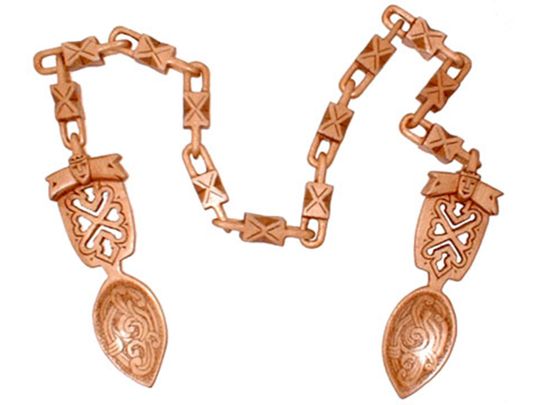
In her song, Single Ladies, American singer Beyoncé famously advised people in love to “put a ring on it” and get married. But if Shakespeare’s tragic couple, Romeo and Juliet, taught the world anything, it’s that this advice is not easy to accomplish.
Click start to play today’s Spell It and find the word ‘wooing’.
Around the world, cultures have developed traditions and customs to help young people navigate the murky waters of courtship. Here are three unique courtship customs that give couples the clarity they need to formalise their relationships:
1. Lovespoons
Since the 17th century, male suitors in Wales have given the women they are courting hand-carved spoons, commonly called ‘lovespoons’. Although the spoons themselves were once utilitarian in design, and were even used for eating, over time, they became symbolic of strong relationships. Today, they are considered to be works of craft art rather than household items. Lovespoons often have intricate designs, and can even be presented for other reasons, such as anniversaries, for a new home, or for luck.
2. Beauty pageantry
Forget Miss Universe. For the nomadic Wodaabe people, who migrate around Niger and Chad, beauty pageants are a way of making love connections – and the people who dress up are always male. The annual events, called Gerewol, usually see women judging, with men flaunting their physical attributes. The men paint their faces with red ochre, dress in bright costumes, and accessorise with ostrich plumes and beadwork. At the end of the festival, each woman judge makes a selection, and the man can choose to reciprocate by letting the wedding bells ring!
3. Whale teeth
The classic symbol of an engaged couple may be a diamond ring in the West, but in Fiji, it’s common to receive sperm whale teeth as a traditional gift from a prospective groom. The teeth can be worn thanks to woven straps, and are called tabua. A suitor presents it to the family of the bride-to-be, when asking for her hand in marriage. Since sperm whales are now endangered, and a protected species, new tabua are hard to come by. But existing tabua are often still bought and sold, and presented ceremonially.
What do you think of these traditions? Play today’s Spell It and tell us at games@gulfnews.com.








